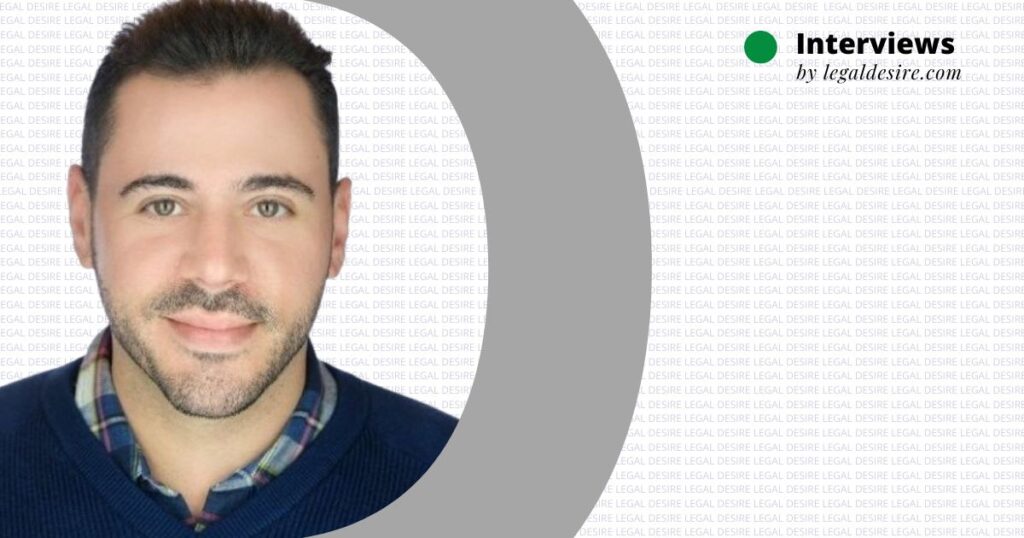Now Reading: Blockchain and IP, the Perfect Match; An interview with Marco Barulli, Founder and Managing Director of Bernstein.io
-
01
Blockchain and IP, the Perfect Match; An interview with Marco Barulli, Founder and Managing Director of Bernstein.io
Blockchain and IP, the Perfect Match; An interview with Marco Barulli, Founder and Managing Director of Bernstein.io
An interview with Marco Barulli, founder and managing director of Bernstein.io
Why is the blockchain relevant for IP?
Let’s start with a good news: humankind is innovating faster than ever. There are many reasons for this exponential creation and exchange of knowledge: the progress of technology, globalization, and increased competitive pressure.
On the other hand, this massive amount of IP is still managed in slow, geographically fragmented and expensive ways. The current IP right system is struggling to keep up with the speed of the digital world, and most innovators are not getting much out of it.
In this scenario, public blockchains represent a great alternative for a new approach to IP management. At their core, public blockchains are a global public registry, independent from any central authority and control. Everyone can have access to an updated copy of this registry, everyone may add something to this registry, but no one will be able to make changes or delete anything. And this new decentralized registry is a perfect tool for creating an indisputable trail of records of all innovation processes.
What is Bernstein and what is Bernstein bringing to intellectual property owners?
Bernstein.io is a web application where innovators can store and certify IP assets of any sort: research results, datasets, audio-visual works, industrial designs, software, manuals, commercial know-how, … Users can structure information in projects and, at any time, request to certify the knowledge included in the project.
Bernstein provides effective IP protection at low effort, low cost. Companies and businesses are using Bernstein to secure the whole creation and innovation lifecycle. They are able to mitigate IP management risks and ultimately enjoy the peace of mind of knowing that their most valuable asset are safe and defensible.
How does exactly Bernstein work? Which technologies does it use?
Every time a user requires the certification of a project, a new transaction is submitted to the Bitcoin blockchain network. That transaction, signed with the private key of the user – that is the owner of the IP assets – includes a cryptographic fingerprint of the project data. This Bitcoin transaction, therefore, becomes a certificate capable of proving existence, integrity, and ownership of all the files and metadata included in the project.
Bernstein complements the registration of a project on the Bitcoin blockchain with the submission to multiple timestamping authorities (TSA). Currently integrated are the ones from EU and China with more coming soon (Switzerland, Japan, India, …).
Most importantly, Bernstein is a zero-knowledge web application. This means that all data are locally encrypted in the user browser before reaching the Bernstein server. Users are not leaking any information to any third party, including Bernstein itself that just acts as a gateway to multiple certification infrastructures, both decentralized like the blockchain, or centralized like the timestamping authorities of governments.
It sounds cool, but how easy is it actually to use Bernstein?
Very easy. To the user, Bernstein looks like any other regular web application. Ultimately, you can think of Bernstein as an encrypted Dropbox combined with a certification layer. Simply drag-and-drop your files and, with just one click, get your IP assets certified on the blockchain and timestamped by multiple authorities (TSA).
Nothing to install, no crypto keys to generate, no need to worry about storage and backups. No Bitcoin wallet or other cryptocurrencies are required. As easy as that.
Which are the benefits for law firms and IP professionals?
Bernstein provides the IP practice of law firms with a white-label instance of its web application. A flexible and powerful tool to serve the growing needs and expectations of their clients, from securing trade secrets to defensive publishing.
By integrating the white-label edition of Bernstein in its service portfolio, a law firm can offer to its clients a practical tool for ongoing documentation and certification of their entire R&D process.
And since lawyers know well the challenges their clients are facing, and the risks they are exposed to, they are able to assist and guide them to make the most of Bernstein certifications.
Ultimately, we love to work with law firms. And we have learned so much from them. Thanks to their inputs, we optimized Bernstein’s functionality to fit many different situations: from proving prior use and prior knowledge against patent trolls, to agile IP management in the fashion and design industry, from producing stronger NDAs and contracts, to generating strong copyright claims.
For those clients engaging in joint research projects and strategic collaborations, the law firm can leverage Bernstein to precisely define the perimeter of background, foreground and sideground knowledge and leverage these definitions in confidential agreements and contracts.
Additionally, Bernstein also strengthens the firm’s position in litigation.
Could you tell me more about the Bernstein team and history?
Bernstein started its operations in 2016 in Munich, Germany, with the initial support of Wayra, the incubator of the global telco operator Telefonica. As a founder, I was joined by Paul Reboh and Jean-Maxime Riviere. While still headquartered in Munich, Bernstein is active through its representatives in many other countries (France, Italy, India, Singapore, Saudi Arabia, …).
Where will Bernstein be in five years?
Our goal is to make Bernstein the decentralized one-stop shop for all the IP management needs. We want to level the playfield of intellectual property rights, offering to individuals and large corporations alike the same tools, the same affordable solutions to claim and defend their rights over their creations, their inventions.
Why did Bernstein decide to enter the Indian market?
India is an innovation powerhouse, and there is a growing demand for IP services especially those related to unregistered IP rights, such as trade secrets and copyright. This demand is widespread, from startups to large high-tech corporations.
There is also a growing ecosystem made of government agencies, incubators and research institutions that is further nurturing the tech development of the country. These players also need the right tools to support local entrepreneurs in establishing and defending the IP they create.
On the other hand, Indian law firms are facing a rapidly changing environment and a shift in expectations from their clients. We are convinced that Bernstein white-label solution is going to be a very effective addition to their service portfolio, capable of attracting and serving this new generation of “digital natives” innovators.
Who has Bernstein appointed to support the Indian market?
Our Indian operation has only recently come into being. Bret Barnard, (India Executive Business Development), is a strong advocate for all things blockchain, and will be supported via our global network in Asia, Dr Daniela Plewe (Global Business Development Executive). His role is to promote and develop our core user base, particularly in the legal domain, by creating visibility to the Bernstein brand, and augmenting and leveraging Bernstein’s technical tools to create value for law firms and their clients.
How can Bernstein India be contacted?
Bret Barnard is contactable at bret@bernstein.io, where he would be happy to provide assistance and support to any questions or queries, or feel free to reach out to Dr Daniela Plewe at daniela@bernstein.io should you have need for assistance for any other regions.








